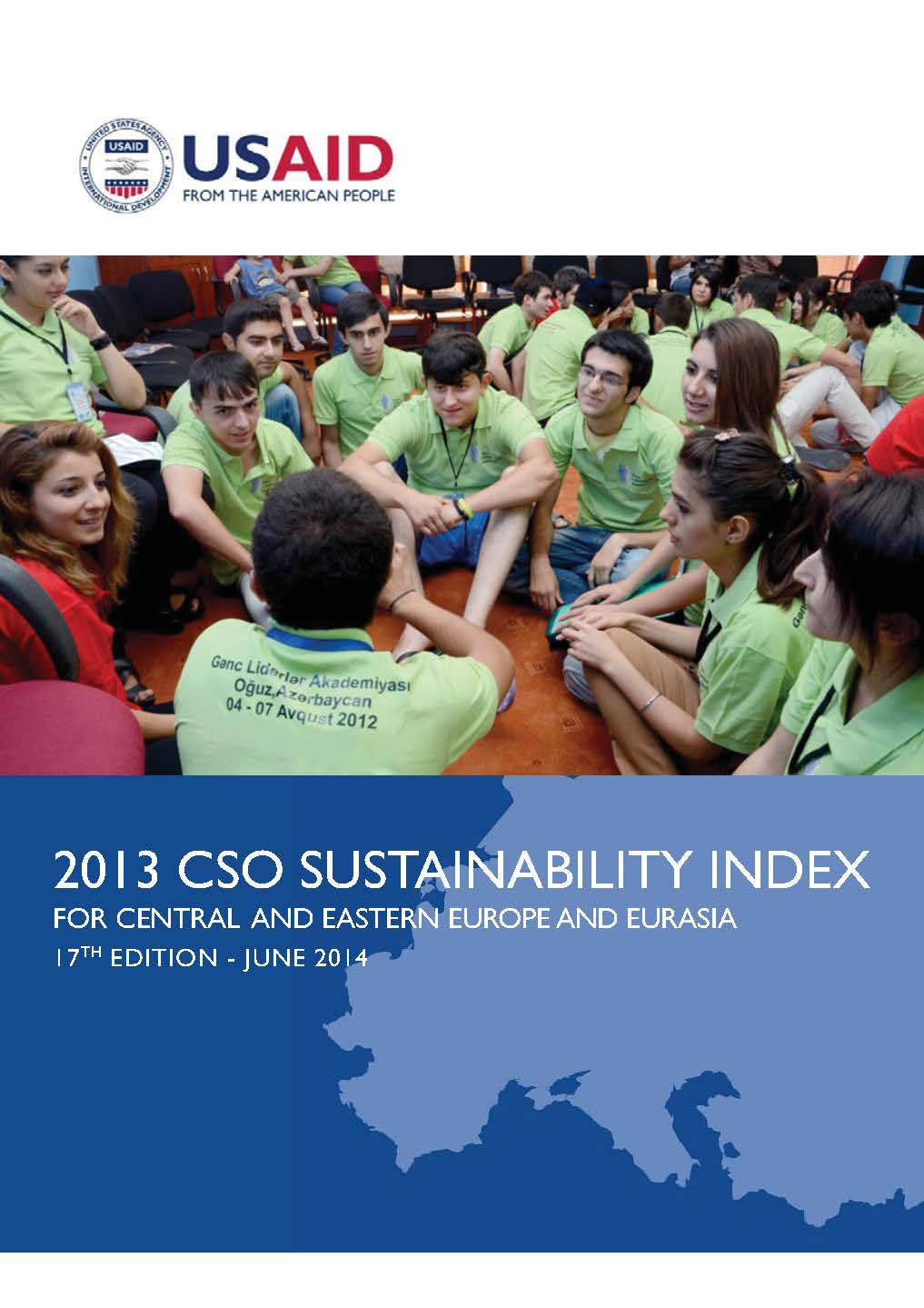Civil Society Organizations (CSO) SUSTAINABILITY: 4.1
Parliamentary elections in October 2012 resulted in the first peaceful transfer of power in the history of a democratic Georgia, while also marking the beginning of a year of political tensions that consumed the public’s attention until the presidential elections in October 2013. Civil Society Organizations (CSOs) were actively engaged in both pre- and post-election processes, including voter education, election day call centers, exit polls, and countrywide monitoring operations. The year-long political coexistence of the new ruling party and the powerful outgoing president extended the space for CSO advocacy, as the public and media turned to forces beyond the government and opposition for alternative opinions and expertise.
Georgia continues to face major economic challenges. Preliminary figures from Georgia’s national statistics service indicate GDP growth of 3.2 percent for 2013, down sharply from the original forecasts of 6 percent, partially because of a significant shift of state funds towards vastly expanded social security programs. Georgians continue to struggle with high unemployment and low average monthly wages of about $400.
CSOs remain largely donor-driven, with no clear prospects for financial or institutional sustainability. Local sources of income remain limited. The dramatic changes in Georgia’s political environment after the parliamentary elections of 2012 temporarily decelerated the anticipated growth in government grants.
However, CSOs expected the ruling party’s victory in the presidential elections of 2013 to bring more certainty to Georgian politics, as well as an increase in government grant opportunities in 2014.
The highly competitive labor market makes it difficult for CSOs to retain, train, and further invest in qualified labor. However, following the late 2012 elections, a surge of former high-ranking government professionals moved into the civil society sector, which significantly diversified and strengthened the sector. At the same time, the massive influx of former government officials—who some view as strong critics of the new government—has further polarized the CSO sector.
A total of 18,733 non-profit organizations were registered in Georgia as of the middle of December 2013, but only a small portion of them are operational.








Comment
Make a general inquiry or suggest an improvement.